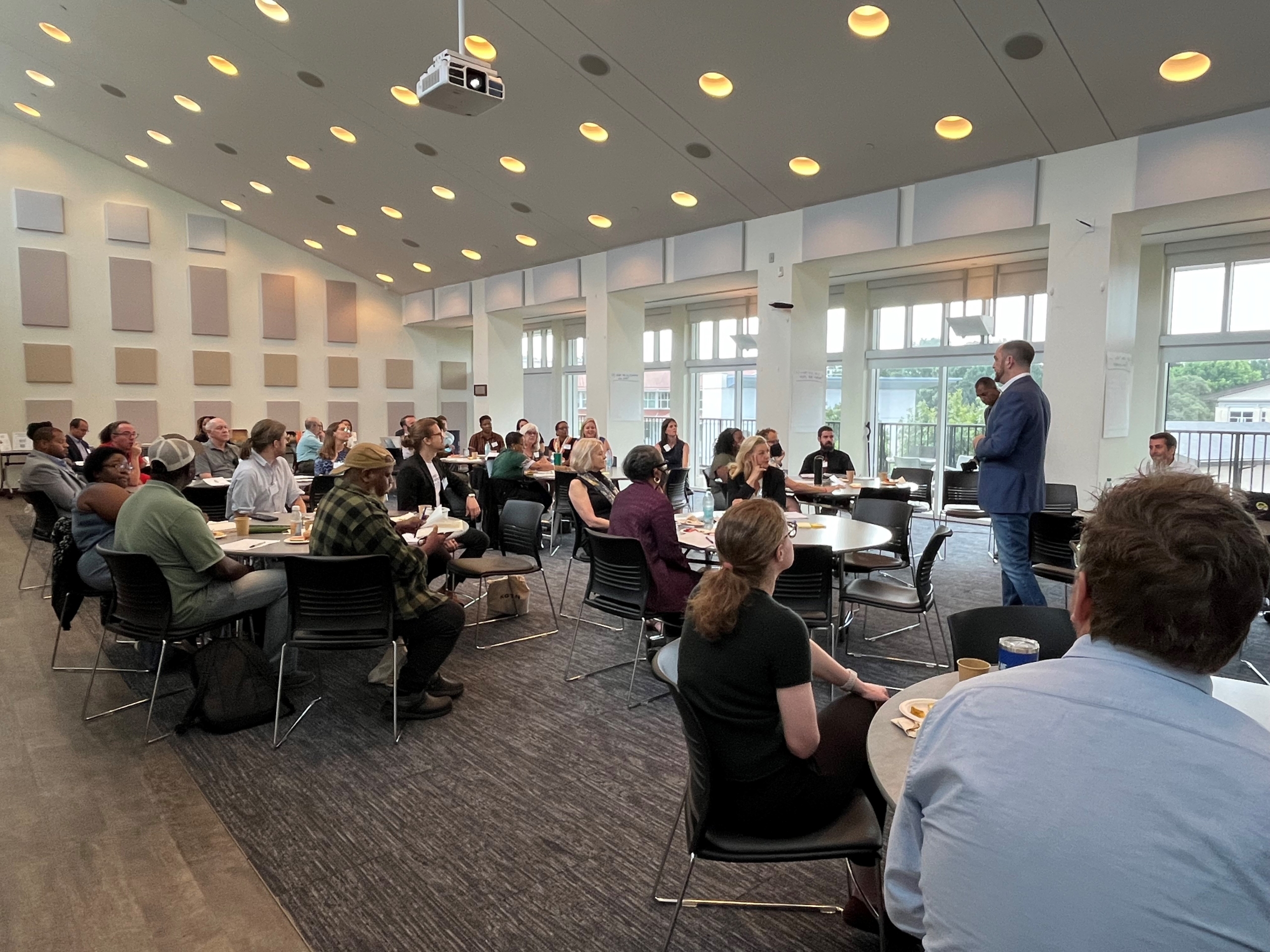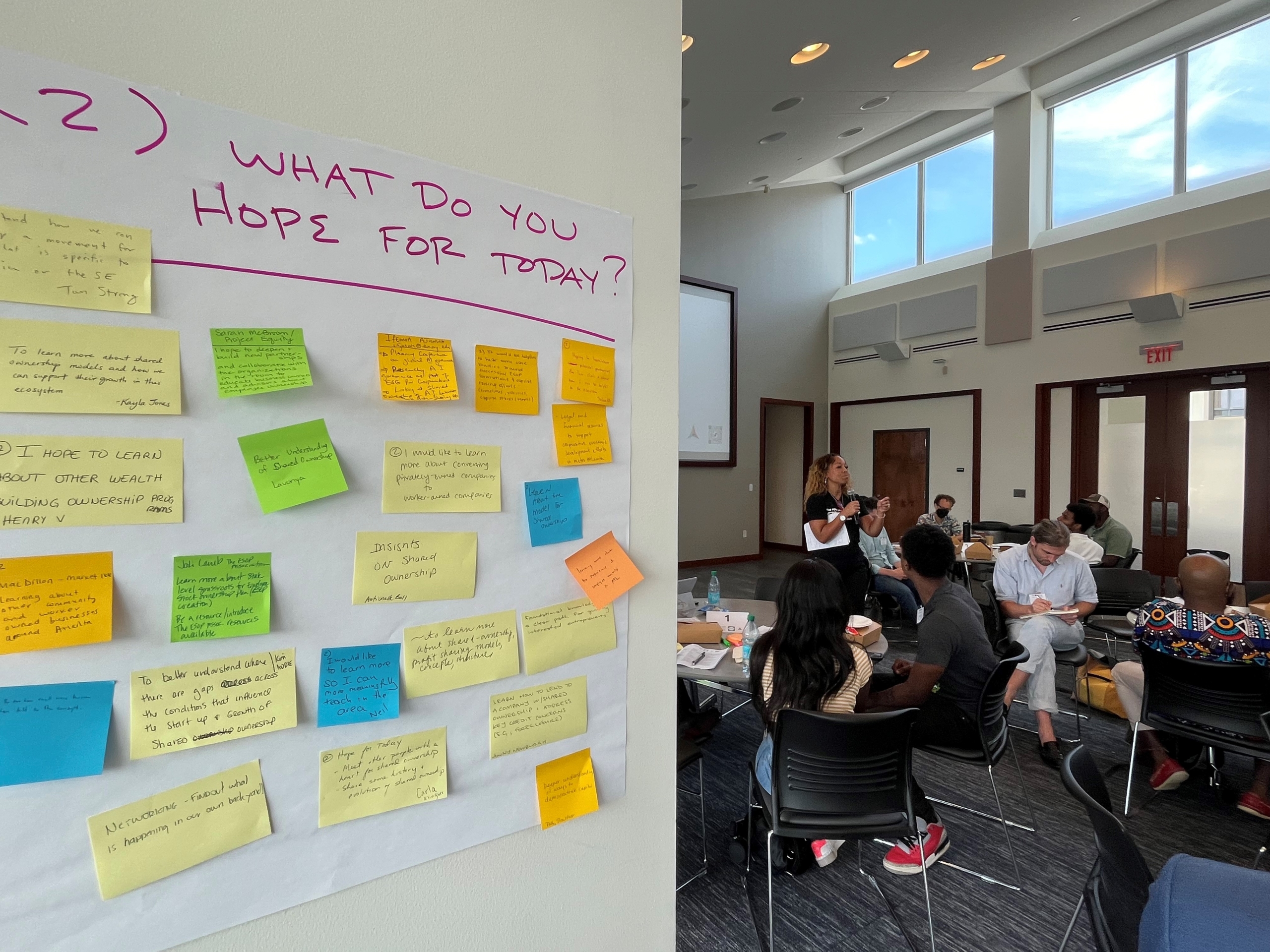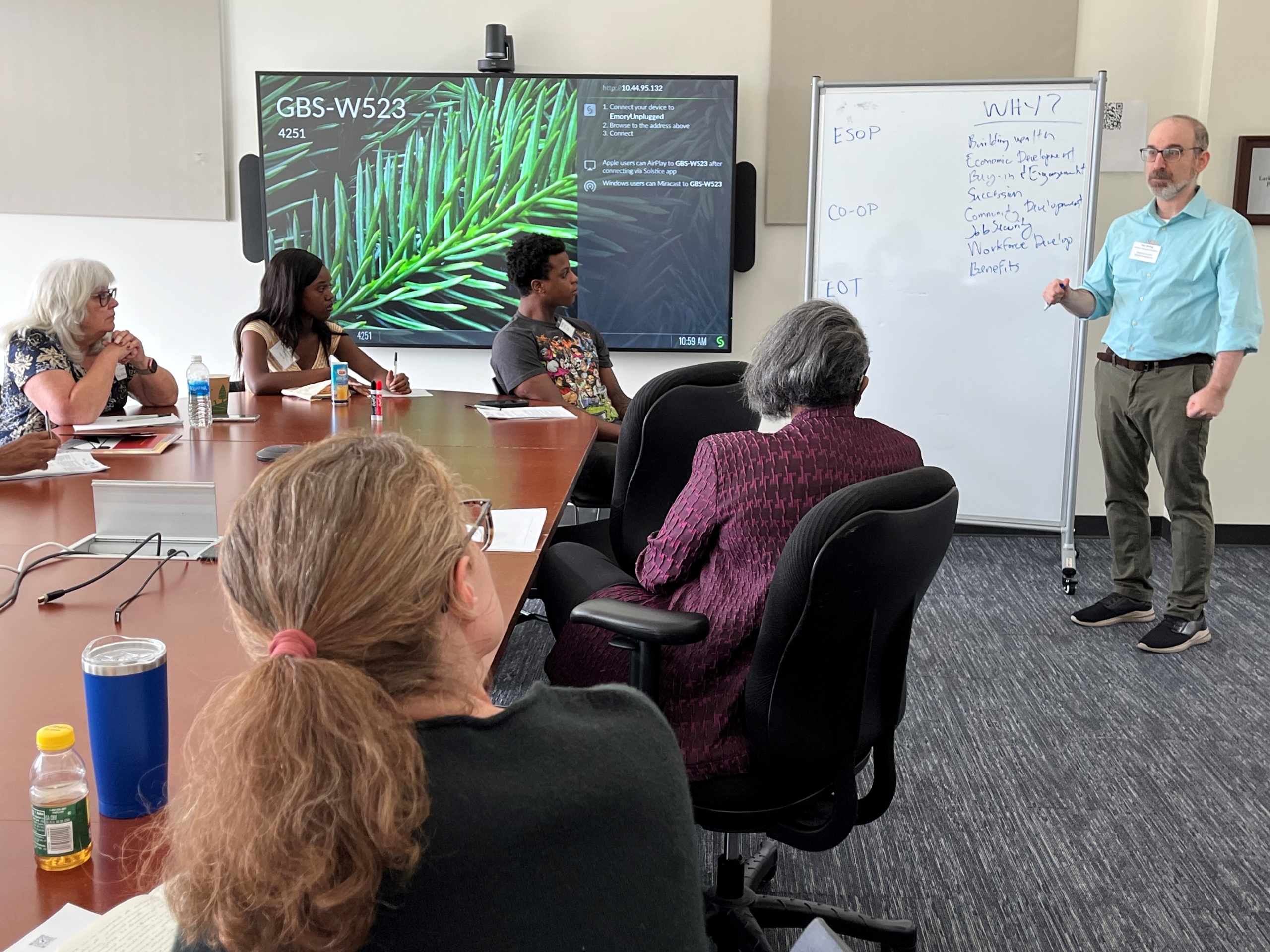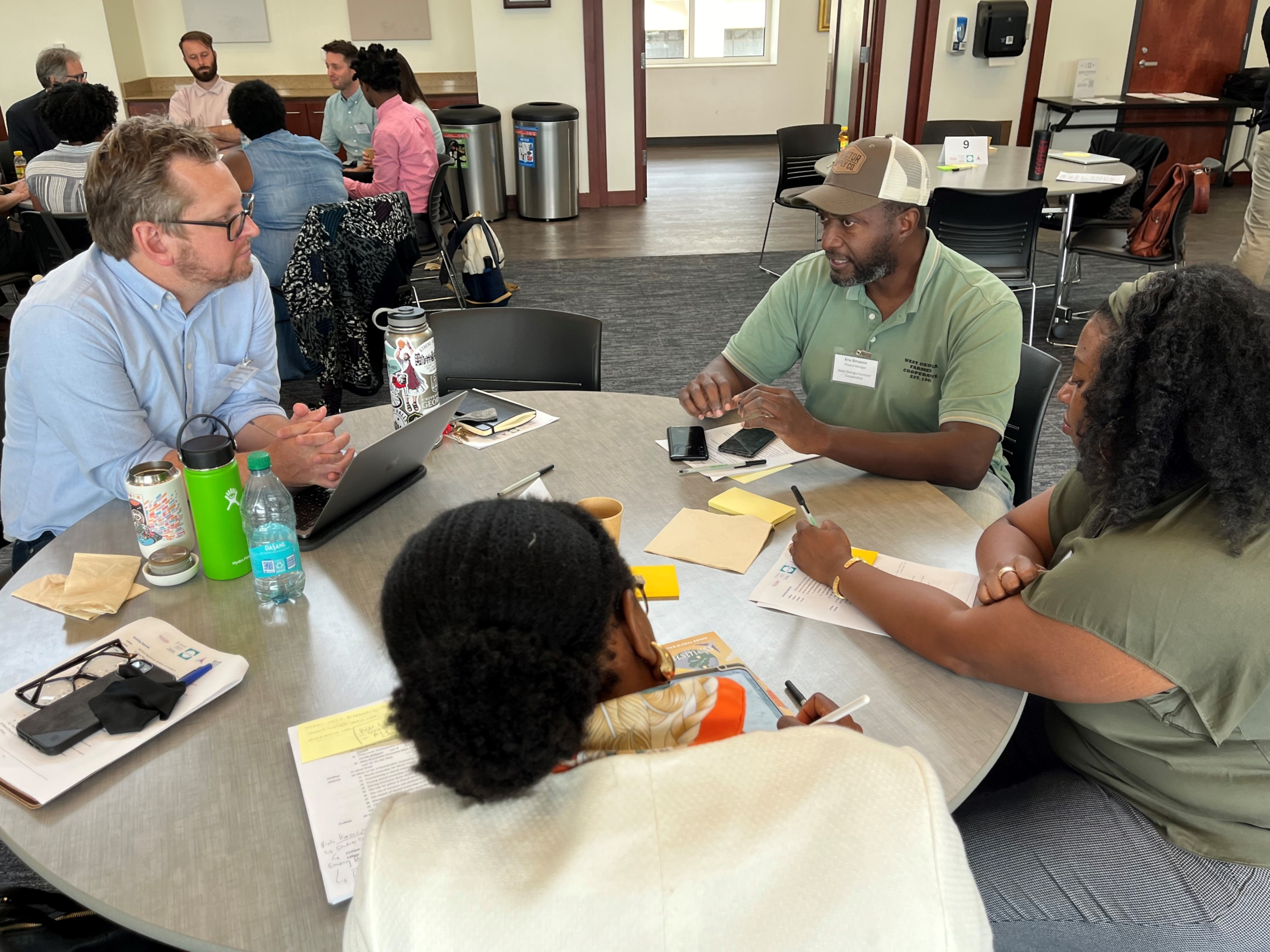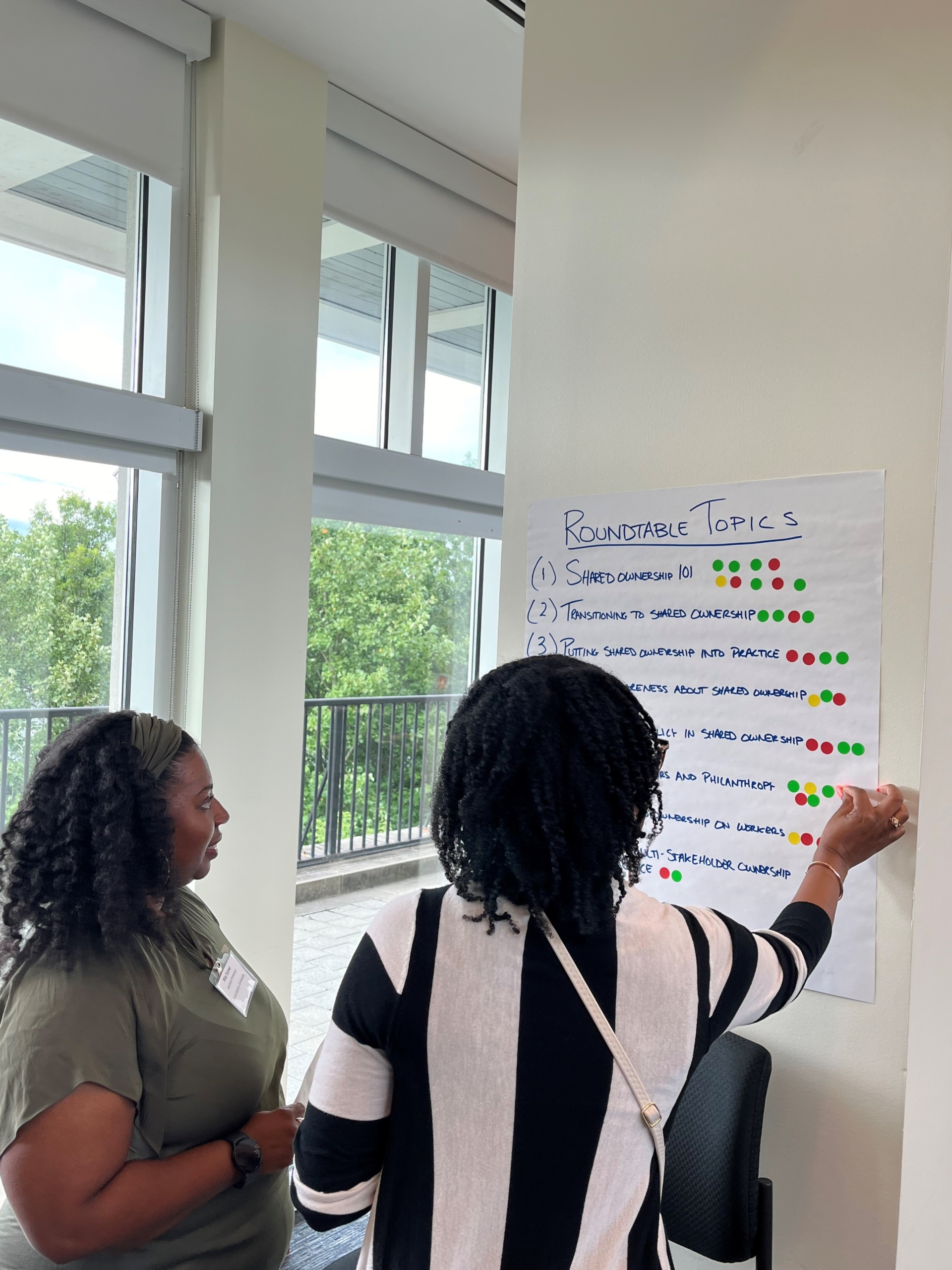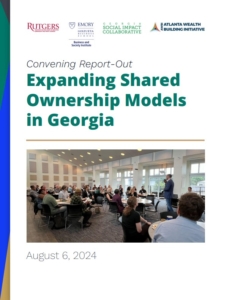Unlocking Shared Ownership in Georgia
The Georgia Shared Ownership Convening, co-hosted by the Rutgers Institute for the Study of Employee Ownership and Profit Sharing, Atlanta Wealth Building Initiative, Goizueta’s Business & Society Institute, and Georgia Social Impact Collaborative (GSIC), brought together 50+ stakeholders to discuss the future of shared ownership models in our state. From ESOPs to cooperatives, these models are vital tools for promoting economic resilience and racial equity. Impact investors – from CDFIs to foundations to private investment funds – can and should play a role in supporting these businesses. Check out our convening report-out (link below) to see how stakeholders are collaborating to build a sustainable ecosystem for shared ownership in Georgia. From policy roundtables to expanding technical assistance, look for more to come from Georgia in 2025!
Why Shared Ownership?
Shared ownership — where workers or community members have a stake in the businesses and assets that shape their lives — is gaining national traction. In Georgia, it’s especially urgent. With a widening racial wealth gap and many small business owners nearing retirement, employee and community ownership can serve as a vehicle for wealth transfer, asset preservation, and economic inclusion, but realizing this potential takes more than theory. It requires investors who understand both the financial and social returns possible when ownership is democratized.
What We Heard at the Convening
The event brought together co-op developers, CDFIs, foundations, financial professionals, government leaders, and small business support organizations. Here are some key takeaways for impact investors:
Call to Action for Georgia’s Investors
If you manage or advise capital that seeks more than just market-rate returns, Georgia’s shared ownership movement offers several pathways:
- Invest in CDFIs or mission-driven lenders building tailored loan products for worker-owned businesses.
- Partner with local foundations interested in place-based investing strategies.
- Support fund development for shared ownership buyouts through recoverable grants, guarantees, or PRI capital.
- Collaborate with TA providers to bundle financing with education and legal support.
- Advocate for public policy alignment to unlock government-backed capital or incentives.
This event reinforced what many folks already know – the shared ownership movement is building. However, capital is a key to maintaining this momentum, and it’s time for more impact-first investors to step in.
Read the Full Event Recap
We hope you’ll take time to dig into the full event recap report to learn more!


